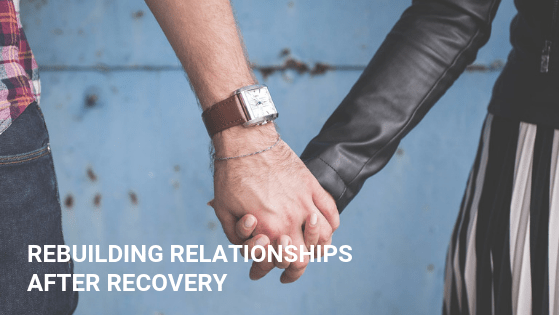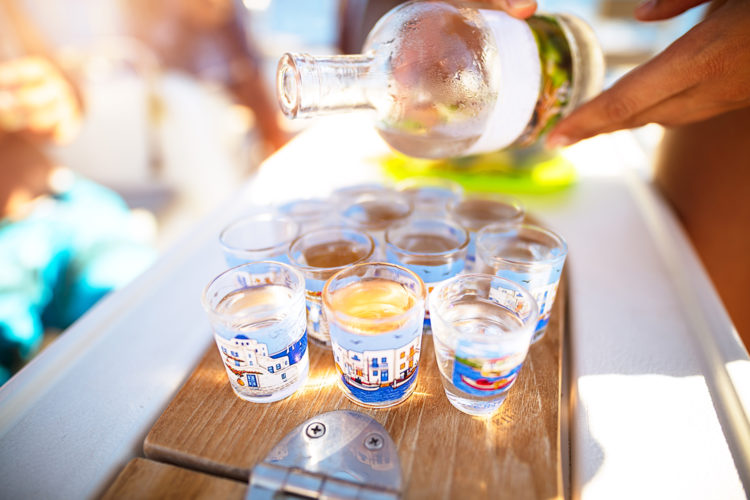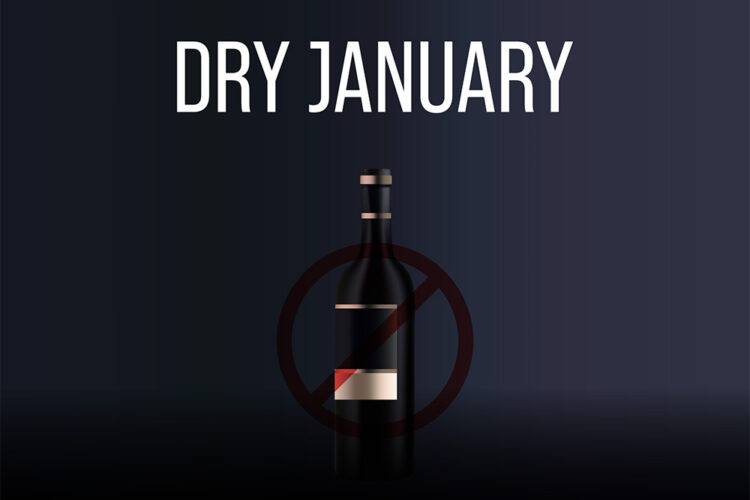
Rebuilding Relationships after Recovery
For those struggling with addiction, the road to recovery can be a long and challenging one. First and foremost the individual must take all the necessary steps to get sober. Acknowledgement of the addiction, getting oneself into and completing a treatment program and then accumulating one sober day after another are all vital steps toward a healthy productive life. However, even after sobriety occurs, the recovering person may be faced with the realisation that life is not immediately better. Something essential to ensuring long term sobriety is repairing broken or strained relationships.
Finding a way back into the trust and friendship of partners, family and friends does not occur overnight. It takes hard work, commitment and a lot of patience. Those who witnessed the decline may initially and outwardly appear happy that recovery is finally occurring, but often the strain in the friendship caused by destructive nature of the addiction has created deep seated feelings of resentment, mistrust and hurt. The illness may have included betrayals, broken promises and numerous disappointments. Additionally the relationships may have been damaged by legal or financial problems and sometimes domestic violence. The person(s) are often mentally and physically exhausted having experienced the illness along with the addict. So understand that there may be some amount of resistance.
The following are some helpful suggestions on how to mend fences and rebuild relationships and following drug and alcohol treatment:
The first step is to reach out to those people you wish to reconnect with. Let them know you are in treatment or have completed treatment for your addiction, as the case may be. Sometimes this may be initially easier done with an email or letter. Let them know you are in the process of getting your life back on track and that you would like them to be part of it. Tell them your communication from now on is going to be honest, direct and clear.
Make sincere apologies for your mistakes or deceits; be as specific as you feel you need to be for what has happened between you in the past and ask for forgiveness. Once you have asked for forgiveness do not keep berating yourself for past mistakes. You no longer have the power to change anything that has already taken place. You can only move forward from this point by making better decisions in your relationships from now on.
Be patient and realistic in your expectations. You may have extended the proverbial olive branch, but sometimes the damage has occurred over years and true forgiveness may take time as well. Allow the other person to express their anger and disappointment. Take their feelings seriously. Don’t make excuses and try not to be defensive.
Work on your communication skills. Practice listening and responding calmly, without judgment. Make a commitment to be trustworthy by standing by your word. Letting your actions show your family or friend that you are seriously trying to be better. Be open and transparent in order to regain trust. This may include telling a partner or friend exactly where you’re going at all times, who’ll you’ll be with, and what you’ll be doing. Show them you are not harbouring secrets. Openness is necessary especially in the early days after you’ve completed drug and alcohol treatment.
Take time to rebuild a positive structure to your life. Eliminate toxic relationships with co-dependants that have yet to come to grips with their own addictions. This is vital to avoiding relapse. If possible, get back to work. Spend quality sober time with family, your children and friends. Let them know how much you appreciate their support and friendship through tough times. Engage in healthy activities and seek out hobbies.
Finally, keep attending relapse prevention meetings as well personal or marriage counselling or sessions. Friends and family members need to see you “walking the walk” to demonstrate that you are serious about your recovery. In time with patience, understanding and perseverance they will come around.
At Ibiza Calm, we have an expert team of professionals available at all times so please do not hesitate to call us if you need any help or advice or if you feel a loved one does. Please call us on :
Share this information, choose your platform!
Balearic Booze Ban
Balearic party meccas have existed in a state of a begrudging trade-off for decades: weighing the economic benefit of booze-fuelled tourism against the reputational cost of the drunkenness. But the balance has finally tipped with new legislation arriving in January …
High Functioning Addicts
Addiction as depicted through the entertainment industry and often the media is full of stereotypical tropes such as the ‘down and out’ dregs of society, the flamboyant rock and roll fall from grace or else the proverbial ‘rock bottom’ moments. …
New Year – New You! A time for new beginnings
New Year is often when we take stock of our lives, contemplate the year just gone and make plans for the months ahead. It is a time for new beginnings and fresh starts. As we move into 2022, we can …
Three stars who share 100+ years of sobriety
Alcoholism and addiction can happen to anyone. Being famous, or rich does not give you immunity to the deadly disease. Here are three well-known celebrities who, after wrestling with dependency problems when they were younger, have been successfully living their …









